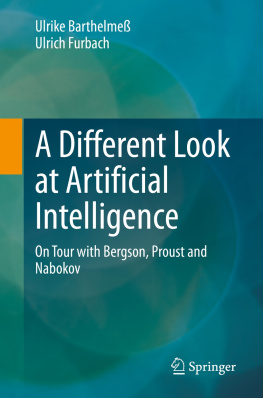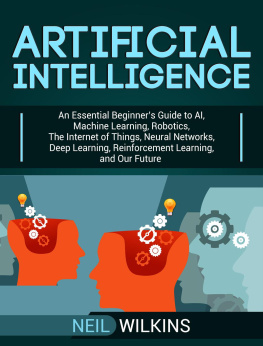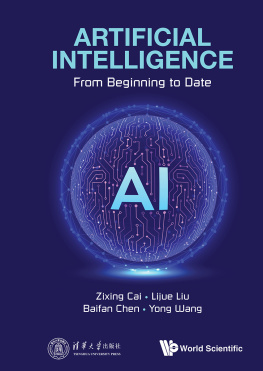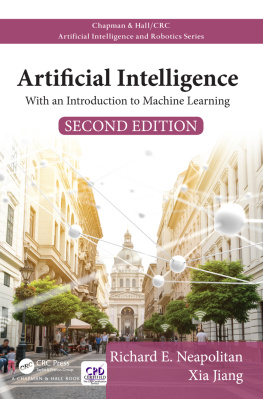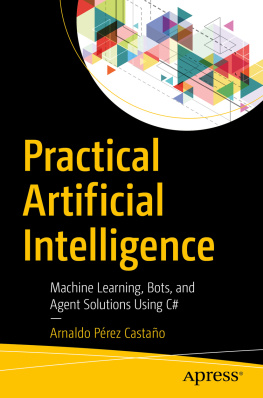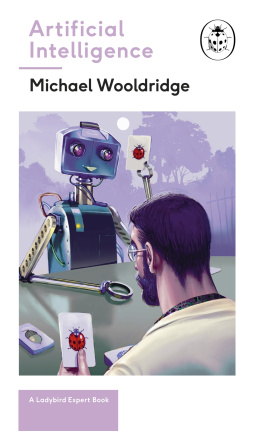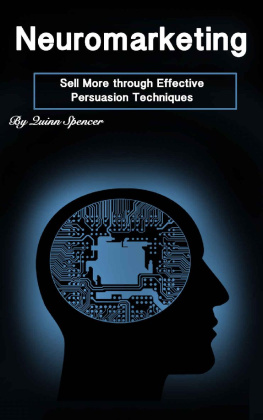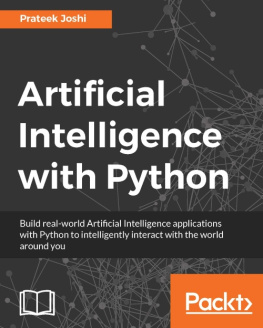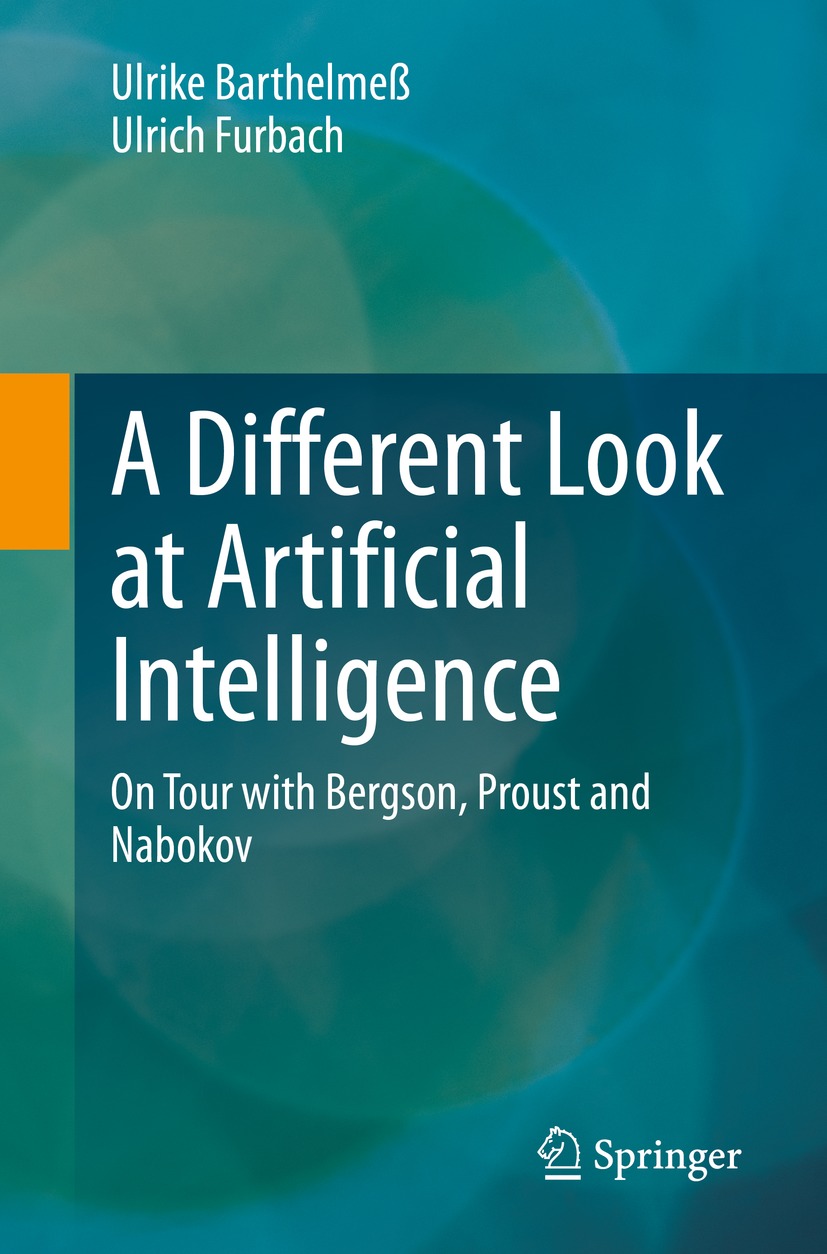Ulrike Barthelme and Ulrich Furbach
A Different Look at Artificial Intelligence
On Tour with Bergson, Proust and Nabokov

Logo of the publisher
Ulrike Barthelme
Koblenz, Germany
Ulrich Furbach
Koblenz, Germany
ISBN 978-3-658-38473-9 e-ISBN 978-3-658-38474-6
https://doi.org/10.1007/978-3-658-38474-6
This book is a translation of the original German edition Knstliche Intelligenz aus ungewohnten Perspektiven by Barthelme, Ulrike, published by Springer Fachmedien Wiesbaden GmbH in 2019. The translation was done with the help of artificial intelligence (machine translation by the service DeepL.com). A subsequent human revision was done primarily in terms of content, so that the book will read stylistically differently from a conventional translation. Springer Nature works continuously to further the development of tools for the production of books and on the related technologies to support the authors.
The Editor(s) (if applicable) and The Author(s), under exclusive license to Springer Fachmedien Wiesbaden GmbH, part of Springer Nature 2023
This work is subject to copyright. All rights are solely and exclusively licensed by the Publisher, whether the whole or part of the material is concerned, specifically the rights of translation, reprinting, reuse of illustrations, recitation, broadcasting, reproduction on microfilms or in any other physical way, and transmission or information storage and retrieval, electronic adaptation, computer software, or by similar or dissimilar methodology now known or hereafter developed.
The use of general descriptive names, registered names, trademarks, service marks, etc. in this publication does not imply, even in the absence of a specific statement, that such names are exempt from the relevant protective laws and regulations and therefore free for general use.
The publisher, the authors, and the editors are safe to assume that the advice and information in this book are believed to be true and accurate at the date of publication. Neither the publisher nor the authors or the editors give a warranty, expressed or implied, with respect to the material contained herein or for any errors or omissions that may have been made. The publisher remains neutral with regard to jurisdictional claims in published maps and institutional affiliations.
This Springer Vieweg imprint is published by the registered company Springer Fachmedien Wiesbaden GmbH, part of Springer Nature.
The registered company address is: Abraham-Lincoln-Str. 46, 65189 Wiesbaden, Germany
Acknowledgements
Some parts of this book were motivated by discussions in lectures and talks on artificial intelligence. The idea of linking the treatment of memory in AI and in literature was inspired by Jonah Lehrers book Prousts Madeleine [1]. We would like to thank Isabelle Barthelme, Beate Krner, Claudia Schon and Holger Schultheis for reading and commenting on parts of the book. Special thanks go to Dr. Sabine Kathke, who was extremely helpful and valuable as editor.
Reference
Lehrer J (2010) Prousts Madeleine. Piper, Mnchen
The Author(s), under exclusive license to Springer Fachmedien Wiesbaden GmbH, part of Springer Nature 2023
U. Barthelme, U. Furbach A Different Look at Artificial Intelligence https://doi.org/10.1007/978-3-658-38474-6_1
1. Introduction
Abstract
The importance of computer science and artificial intelligence is explained in this introductory chapter. It is argued that related topics should not only be discussed from the perspective of the natural scientist or technician, but that philosophers, literary figures and artists should also be brought into the discussion.
Technical developments have always influenced and changed our lives. This is probably most clearly illustrated by the example of the steam engine and the subsequent industrial revolution in the 19th and 20th centuries in Europe. The mechanisation of industrial production had not only changed peoples working conditions, but also their living conditions. Social structures changed, a rural exodus set in, and the cities in the industrial areas offered unhealthy and inhumane living conditions, at least for the working class.
Computer science, has shaped our life and work in a similarly drastic way. When I started studying computer science in the early 1970s, I always had to give an explanation when I was asked about my field of study: Informatik (the German word for computer science), that is, computers and stuff At that time, computers were used at most in large companies that could afford the immense acquisition or leasing costs of the so-called mainframe computers. The first PC did not appear on the market until the 1980s, and with it the image of computer science in society gradually changed. Suddenly it was possible to communicate using computers, airline ticket sales were handled via computer networks, database systems permeated public administration, and we slowly learned how to use this technology. In companies, employees had to make friends with the colleague computer, microprocessors found their way into our automobiles and improved comfort. Not quite so noticed by the public, computers at the same time became more and more important for the armament industry and thus also for our security. In the meantime, information technology has permeated our entire working and living environment. Very slowly, relatively unspectacularly, but no less drastically, we are becoming dependent on computer systems and networks in pretty much all areas of life. The Internet is, so to speak, the lifeline of our society. Learning, knowledge acquisition, finance or consumption are no longer imaginable without the worldwide internet. At the same time we have also become more transparent. The search engine, social network or shipping platform operators know more and more about us, about our buying and living habits. User data has become an important economic asset; companies that have access to large amounts of user data achieve huge market values, entire business models are based on this customer data. This data is interesting because it can be analysed using techniques developed in the field of artificial intelligence (AI) research, so that a wide range of conclusions can be drawn about people who generate this data. Of course, this information can also be used to make our lives more convenient: My online retailer knows which products I prefer and sends me special offers accordingly, my personal assistant in my smartphone or in the speaker box in my living room knows what my taste in music is and makes appropriate suggestions.
These AI techniques are different from the algorithms we use in computer science. Of course, these are also algorithms, computer programs developed by humans, but these programs have the ability to learn. This means that they evolve and modify themselves as they are used the direction this takes depends on the data the processes encounter as they are used. In the case of these so-called machine learning (ML) methods, it is not possible to foresee in detail from the outset how they will evolve. ML techniques in particular have recently given AI research and development an immense boost: AI systems win quiz shows, they beat world-class players in highly complex games such as Go, they help make our vehicles safer by assisting drivers in a variety of ways, and they are even starting to make vehicles drive autonomously. AI systems are also being used to make military weapons systems intelligent and possibly even autonomous the implications for deployment and the impact on military and political decisions are seen by many AI researchers as highly critical and dangerous. To this end, there is a call to outlaw autonomous lethal weapons worldwide, which has already been signed by thousands of scientists and well-known companies.

